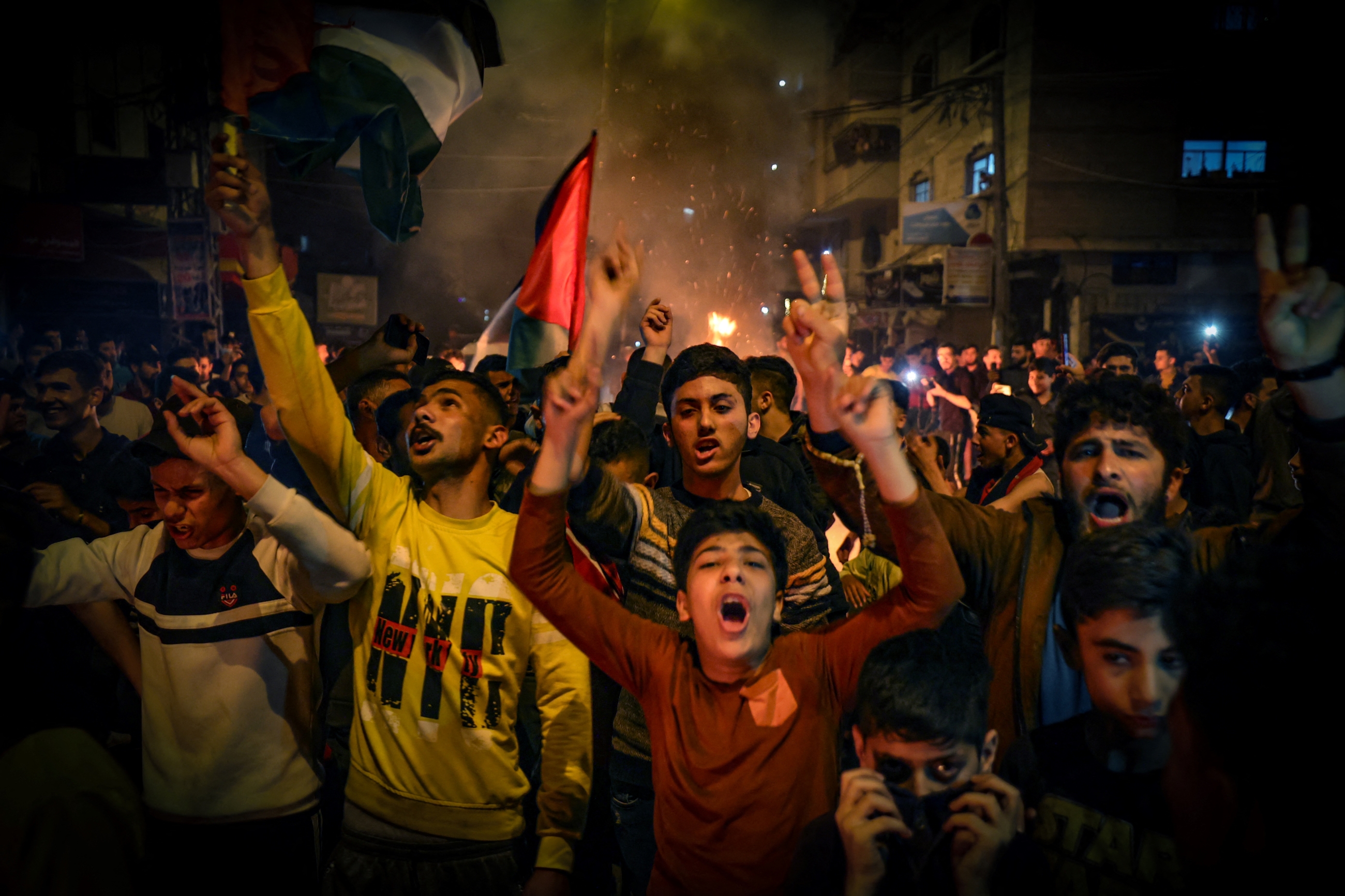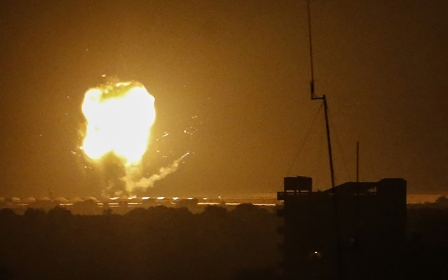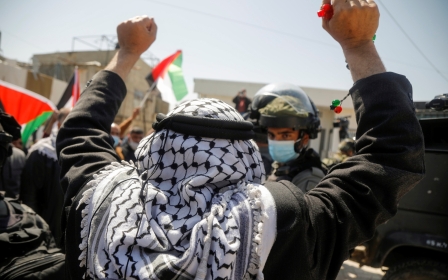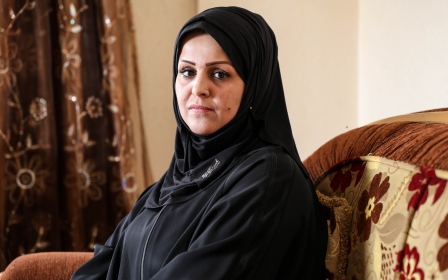Israeli jets strike targets in Gaza following unrest in Jerusalem

Israeli jets struck targets in Gaza overnight after a series of rockets were fired into Israel from the besieged enclave.
The Israeli army said it had struck underground infrastructure and rocket launchers belonging to Hamas, the group that controls the Gaza Strip.
"Fighter jets and attack helicopters struck a number of Hamas military targets in the Gaza Strip," the army statement, adding that all 36 rockets fired from the enclave had been intercepted or hit open ground.
The army said Israeli tanks shelled Gaza in response to an initial rocket attack, but the reprisals were met with a new volley of a dozen rockets, prompting the launch of air strikes against suspected launch sites operated by Hamas.
The WAFA news agency said three people in Gaza had been injured by Israeli army gunfire on Saturday night.
New MEE newsletter: Jerusalem Dispatch
Sign up to get the latest insights and analysis on Israel-Palestine, alongside Turkey Unpacked and other MEE newsletters
Armed groups linked to Fatah and the left-wing Popular Front for the Liberation of Palestine (PFLP) claimed responsibility for the rocket attacks, which they said were retaliation for recent violence against Palestinians in Jerusalem.
Protests broke out in Jerusalem on Friday, a day after hundreds of supporters of the far-right Lehava group marched into the heart of Palestinian East Jerusalem.
The group, which is noted for campaigning against mixed marriages, said its march aimed to "restore Jewish dignity," with supporters chanting "Death to Arabs” and attacking Palestinians.
The violence, which lasted from late Thursday evening until Friday morning, left 110 Palestinians and 20 Israeli policemen injured, while 50 Palestinians were arrested, according to official Palestinian Authority news agency Wafa.
Friday's skirmishes happened after tens of thousands of Muslim worshippers left the city's revered Al-Aqsa Mosque compound after night prayers and found themselves confronted by dozens of armed police, some on horseback.
Protesters hurled water bottles at police, who fired stun grenades to disperse the crowd.
Hundreds of Palestinians also gathered at the Qalandiya checkpoint between Jerusalem and the occupied West Bank, police said.
In the West Bank town of Bethlehem, Palestinians threw stones and petrol bombs towards the tomb of biblical matriarch Rachel, a shrine venerated by Jews and Muslims.
There have been nightly disturbances in East Jerusalem since the start of Ramadan on 13 April, amid Palestinian anger over police blocking off access to the promenade around the walls of the Old City, a popular gathering place after the end of the daytime Ramadan fast.
Jerusalem Mayor Moshe Lion told public radio he was in talks with Palestinian community leaders in east Jerusalem "to end this pointless violence".
Lion said he had tried to cancel the Lehava march, but police told him it was legal and noted that "dozens" of Jews who attacked Arabs had been arrested in the past two weeks.
The office of Palestinian President Mahmoud Abbas condemned "the growing incitement by extremist far-right Israeli settler groups advocating for the killing of Arabs".
In a statement on the Palestinians' official Wafa news agency, it urged the international community to intervene to protect Palestinians.
Jordanian Foreign Minister Ayman Safadi condemned "racist attacks" by Israelis against Palestinians in East Jerusalem and called for "international action to protect them". "Jerusalem is a red line, and touching it is playing with fire," he warned.
Middle East Eye delivers independent and unrivalled coverage and analysis of the Middle East, North Africa and beyond. To learn more about republishing this content and the associated fees, please fill out this form. More about MEE can be found here.





